As we navigate the current challenges faced worldwide, there is a growing conversation around the topic of authentic, empathetic and wise leadership. Leadership development requires transformative work, and there is demand for encouraging innovative thinking and nurturing creativity within organizations. Exponential technological advancements, including AI, are focused on making the world a better place for the human race. The focus lies on serving humanity. Organizations and leaders have to be able to meet the growing demands and lead the next generation to address the complexities of changing times. We need a deeper understanding of what it takes to be a wise leader.
In our earlier article “I’ll meet you at the Ba”, we briefly touched on the topic of turning tacit knowledge (acquired through personal experience) into explicit knowledge (documented and codified) and vice versa, through the process of the SECI model (socialization, externalization, combination, and internalization). We also introduced the novel concept of ‘ba’, a shared space where one transcends their limited perspective (originating ba, dialoguing ba, systemizing ba, and exercising ba). We now bring to you Nonaka & Takeuchi’s insight stating that tacit and explicit knowledge would be incomplete without a third kind of knowledge, called “practical wisdom” (adapted from “The Wise Leader” by Ikujiro Nonaka and Hirotaka Takeuchi).
The origin of practical wisdom lies in the concept of ‘phronesis’ – an ancient Greek word – one of three ways of knowing as described by Aristotle (phronesis has been translated as practical wisdom, prudence, intellectual virtue):
- Episteme or universally valid scientific knowledge: the know-why
- Techne or skill-based technical know-how: the know-how
- Phronesis or practical wisdom: the know-what-should-be-done
Nonaka states, “To make the right decisions, managers need to understand why a company exists – its raison d’etre.” Practical wisdom, according to Nonaka, is experiential knowledge and an intellectual virtue that enables people to make ethically sound judgements. It can be understood as the capacity to take incredible action to achieve the common good in a specific circumstance; it is not merely theoretical knowledge but also an authentic ability to act on such knowledge for the common good of all.
Six Abilities of Wise Leaders
What abilities must leaders harness to lead as ‘phronetic leaders’: Nonaka proposes six abilities:
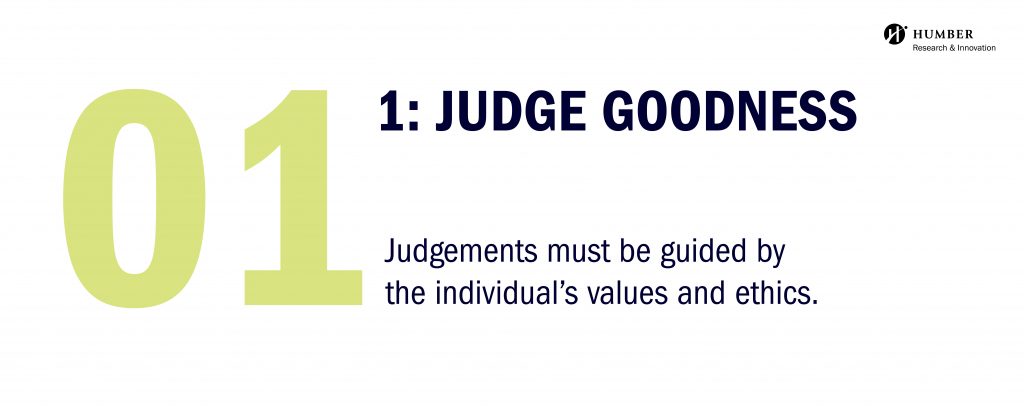
01 JUDGE GOODNESS
Judgements must be guided by the individual’s values and ethics
Phronetic leaders must conduct themselves in the interest of common goodness for all. They must decide what’s good and act on it in every situation. The leader needs to have a solid philosophical foundation. To see what’s good for the whole, they must embrace the thought process of not just living in harmony with society but also contributing to society. There are four ways of cultivating this ability: learning from experience and failures, sharing these experiences, relentless pursuance of excellence, and becoming well versed in the liberal arts.
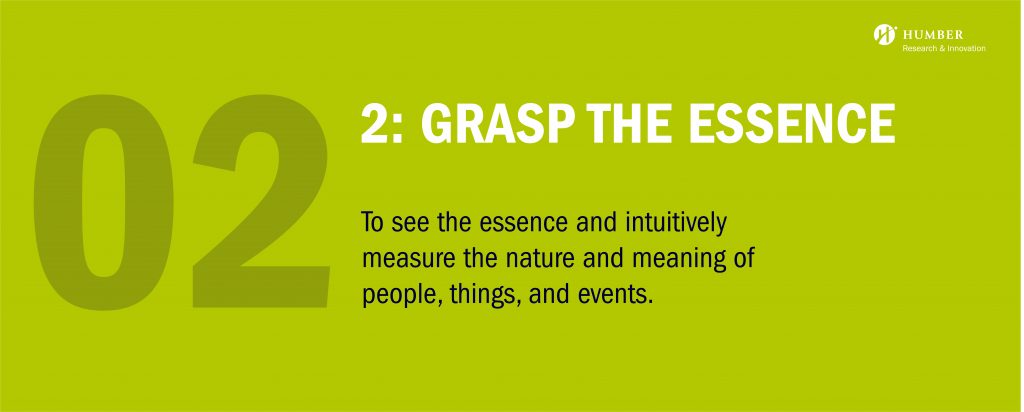
02 GRASP THE ESSENCE
To see the essence and intuitively measure the nature and meaning of people, things, and events
Phronetic leaders quickly sense what a particular situation demands and act accordingly. They build a capacity for paying attention to detail and persist in pursuing an outcome relentlessly. These leaders keep going back to basics, concentrating on small things, continuously interacting with subjective intuition and objective knowledge. Executives and leaders should practice three mind-stretching routines: unceasingly question the basis of a problem or a situation, learn to see the trees and the forest at the same time, and construct and test hypotheses.
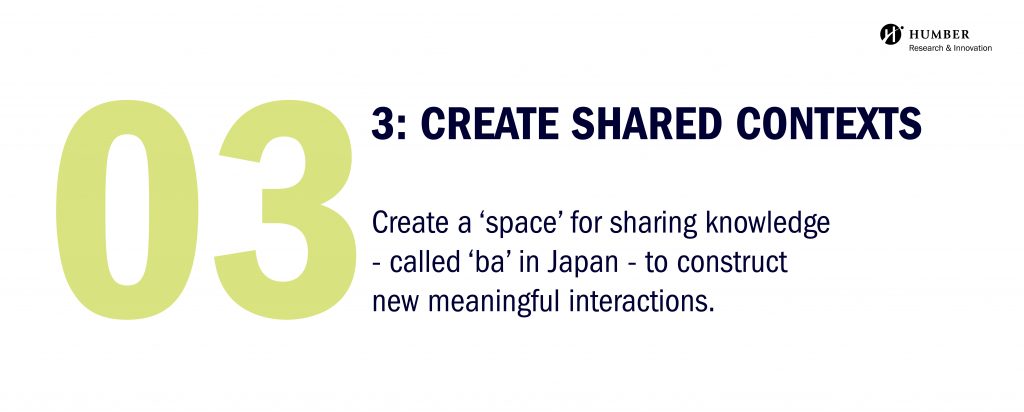
03 CREATE SHARED CONTEXTS
Create a ‘space’ for sharing knowledge – called ‘ba’ in Japan – to construct new meaningful interactions
Phronetic leaders encourage the sharing of tacit and explicit knowledge throughout the organization. This can be in a formal setting of ‘ba’ where participants with a shared sense of purpose interact closely to transcend one’s own limited perspective and therefore create new knowledge. This can be an informal ‘ba’ setting, where transfer of knowledge takes place, like at a café or a sports activity. Leaders should foster and nurture sharing of emotions and different points of view, further fostering acceptance and viewing a situation from a different lens. A ‘ba’ can be top-down or bottom-up.
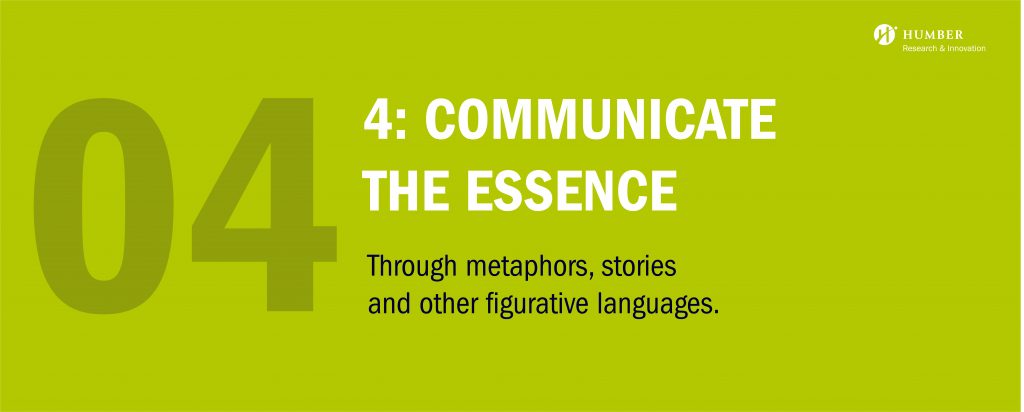
04 COMMUNICATE THE ESSENCE
Through metaphors, stories and other figurative languages
Phronetic leaders must possess the ability to express and communicate the essence of things clearly and incorporate metaphors to clarify the objective and vision. Individuals with diverse backgrounds and different experiences will be able to grasp a concept better when portrayed through the art of storytelling. A story can help in gaining insight from another perspective and understand one thing while envisioning another. Nonaka suggests reading as many novels as possible in all genres to build this ability.
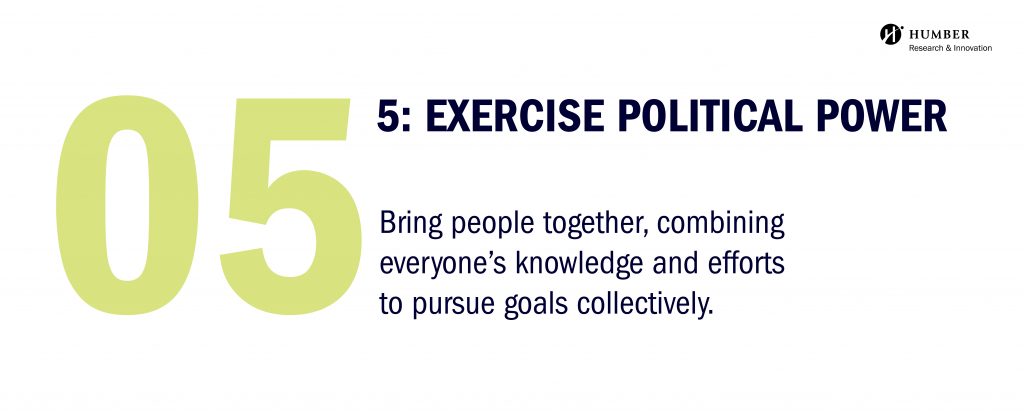
05 EXERCISE POLITICAL POWER
Bring people together, combining everyone’s knowledge and efforts to pursue goals collectively
Phronetic leaders, in addition to identifying and communicating the essence, should be able to use necessary political means to obtain the common good. They should strive to understand all the contradictions in human nature like good & bad, civility & incivility, optimism & pessimism, and fuse them depending on the situation. Leaders must be imaginative in the way they lead people to do better. Nonaka mentions shrewdness and stubbornness are often necessary to create something new and good.
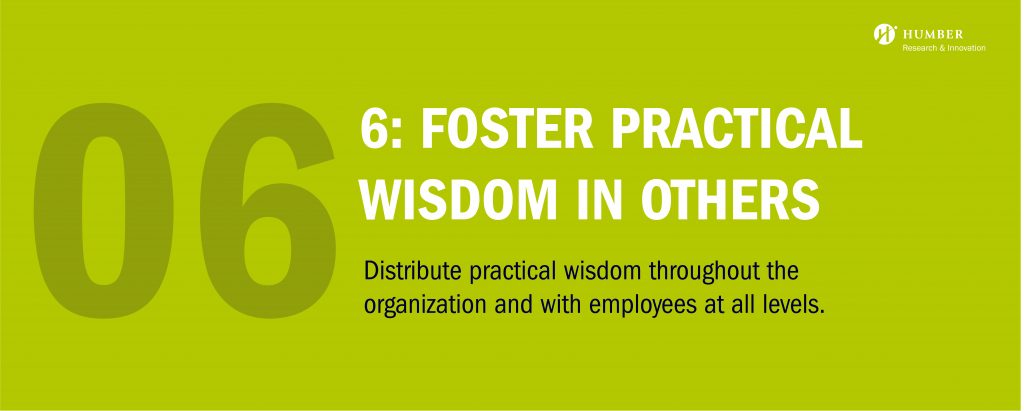
06 FOSTER PRACTICAL WISDOM IN OTHERS
Distribute practical wisdom throughout the organization and with employees at all levels
Phronetic leaders lead by example. Others can learn about practical wisdom by observing how leaders conduct themselves. A formal system of apprenticeship is recommended to foster practical wisdom. Practical wisdom should not be regarded as an entity to possess but to share and distribute at all levels. Nonaka states that fostering distributed leadership is, therefore on one of the wise leader’s biggest responsibilities.
Read the full article “I’ll Meet You At The ‘Ba'”
References
- Nonaka, I., Toyama R., and Konno N. (2000): SECI, Ba and Leadership
- Nonaka, I. and Takeuchi, H. (2011): The Wise Leader
